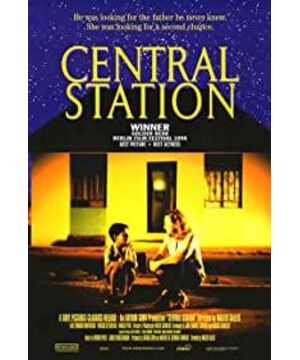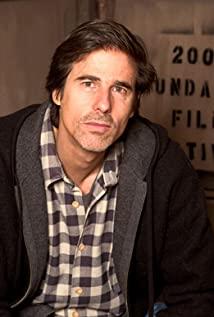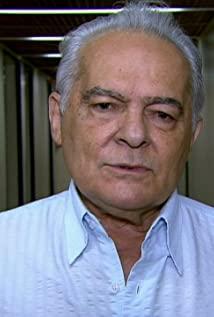After the quasi-religious theme of reunion in the name of the Father (Jesus) is basically resolved, the film also presents many real-life conflicts that contradict this theme of fulfillment. For example, most people in religious life are accompanied by poverty and ignorance. As the most important life scene in the film, the Central Station not only reflects the modernization level of a developing country, but also witnesses the normal life of ordinary people in this country in a statistical sense. Interestingly enough, Dora, the heroine in the film, makes a living by writing and mailing letters for the illiterate at Grand Central Station (ironically, her previous job was a literacy teacher), So we can only smile knowingly and join Dora as witnesses to those strange letters. While lamenting that there are still so many illiterate people in the international city of Rio de Janeiro, those who are interested may still find that someone is actually writing a letter to Jesus. So, we also witnessed the process of Dora, who was supposed to be an "enlightenment", transformed into a "messenger" in the endless stream of people at Central Station, but these two seemingly similar roles were completely different in function. The opposite of. And what about beyond Grand Central Station? That was Joshua's father-seeking path. Although the religious life there is more primitive and pure (burials, sacrifices), as a marginal area far from the center, we can hardly see any hope that this living state can bring people. .
However, the so-called modern life order outside the religious life order does not rely on democracy and the rule of law, but outright violence. The police who maintain order at the Central Station are actually also the underworld. They charge Dora and the others for protection, and they can stole a bar of soap without trial. And the economic source on which Dora's urban life depends has been guaranteed. It is worth noting that the director seems to want the audience to completely despair of the modern urban life in this film. Dora's neighbor and best friend, that gorgeous woman, it seems difficult for us to imagine that her way of making a living is without paying protection fees. .
So the question is, the boy Joshua and Aunt Dora are completely people in two worlds, how did they finally perform a touching drama? After reading it, my friend told me that Dora's process of helping the little boy Joshua to find his father was atonement. It must be admitted that the atonement complex is precious to Dora, and at the same time, it gave the audience another reason to be moved. But if you think about it, the problem may not be so simple. The key to Joshua and Dora's gradual establishment of a close and trusting relationship in the process of finding their father is not whether they can redeem their sins, but whether they can get what they need. Joshua lacks harshness Life skills and experience in a living environment (hiking trucks, stealing things), and Dora, who was abandoned by her father since she was a child, lacks family-like affection. The mutual support of the old and the young in their search for relatives is touching, but the root cause is that the great depth of their daily life is flawed. The ignorant and backward living religion and the violent order of ignorance of the six relatives, these two lifestyles are not recognized in the minds of the director and screenwriter, but under the arrangement of their ghosts and gods, the audience can see a glimmer of hope after mutual integration and complementarity. Decay for magical ideas.
The next problem is that many viewers may be selfish, rather than placing Joshua in a marginal village growing up with his two half-brothers (reunited but his father is missing, and the two older brothers have slightly less personalities) Weird), it would be better for Dora to take her back to Rio de Janeiro, and from then on, the old and the young depended on each other for life. It has to be said that the director and screenwriter made a desperate design with restraint once again on such an emotionally overflowing occasion. Dora left alone, and the old and the young only exist in each other's memories from now on. I'm thinking that this arrangement must not violate the religious theme framework of the film's final reunion and the needs of Dora's redemption complex, but we need to pay attention that the reason why Dora does this is based on her deep feelings for her and the covenant. A deep understanding of the huge gap between the two worlds in which Asia lives.
In the process of establishing a trusting relationship between Joshua and Dora, Dora thought of giving up many times, including her fear of the context of her family (from her father), and the pain of her unsuccessful attempts to pursue (and missionary ones). truck driver), while she discovers that the talented Joshua has gradually become a microcosm of her in the process of getting along with her (such as stealing food, talking to her about men and women). She has reason to worry and struggle. As people from two seemingly complementary but essentially mutually negating worlds, will she and Joshua really get what they need to achieve consummation? Not necessarily, maybe a new round of bloody dramas will be staged again. Therefore, when Aunt Dora, who has been struggling for many years in the world of violent order, put on the blue dress that Joshua had chosen for her in the early morning, and set foot on the way back home from Rio de Janeiro, it was not so much the case. It is the expression of Dora's free and easy character that the audience likes, it is better to say that she has seen the truth of two rivers that will never meet.
View more about Central Station reviews









